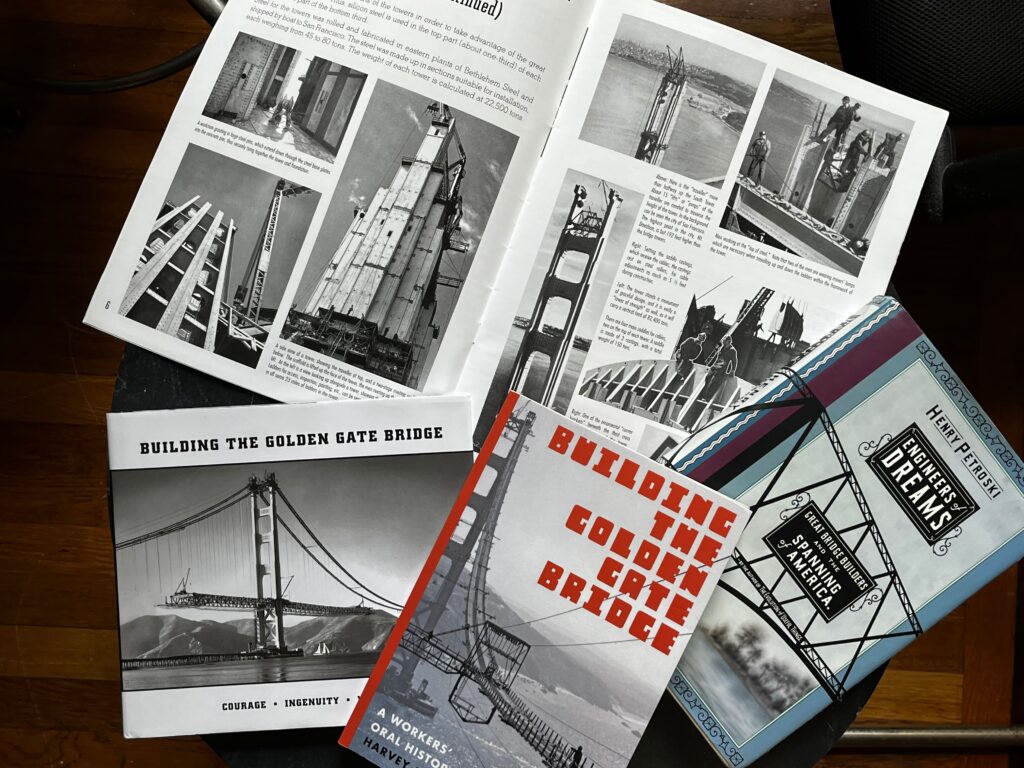The Golden Gate Bridge
1/ Today we travel in time…
It is 1937 and we are approaching the construction of the wonderful Golden Gate Bridge, a milestone of engineering and progress. We interviewed Mr. Joseph Strauss –chief engineer–, Fred Divita –worker on site–, and Minnie Pérez, the first person to cross the Bridge.
Make yourselves comfortable.
👇🏽


2/ Interviewer (I): Mr. Strauss, tell us how a boy from Cincinnati became Chief Engineer of a World record bridge.
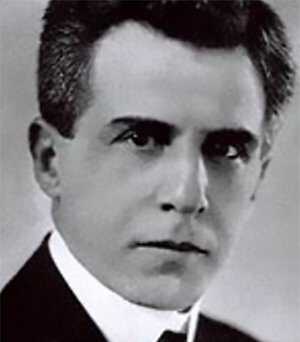

3/ Strauss (S): Good morning and thank you very much for having me. I was born in 1870 and I studied engineering at my city´s University. After graduation, I moved to New Jersey and started working as a draftsman in a bridge office. Then, I moved to Chicago and ended up working for the great Ralph Modjeski, one of the best-known large-bridge engineers.
4/ Fred Divita (F): Yeah! Engineer of the neighbor Oakland Bay Bridge, which was recently opened to the public as well.
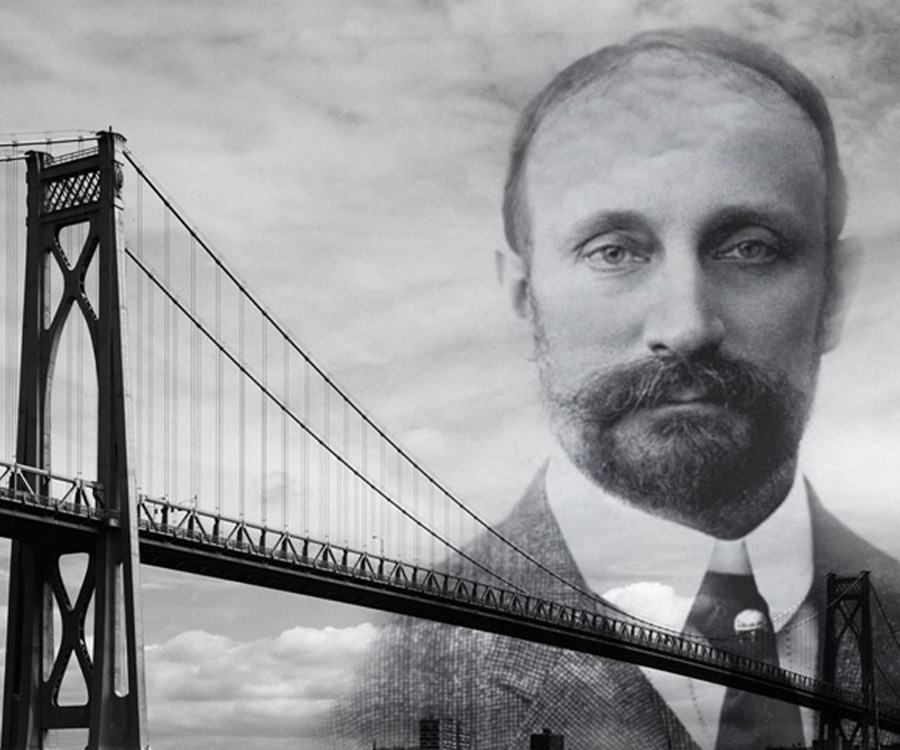

5/ (S): Correct! I opened my own firm in 1904, the Strauss Bascule Bridge Company. We made a lot of bascule bridges and thanks to different patents we grew until having offices in Chicago and San Francisco. My idea was to use concrete for the counterweights, cheaper than iron or steel.
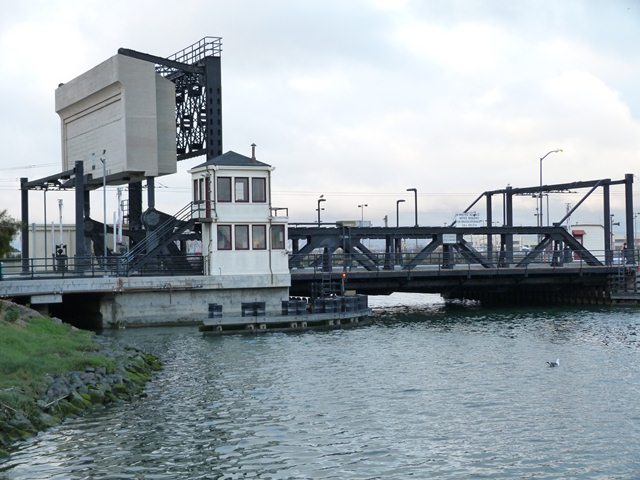

6/ (S): And… around 1918 I met Michael O’Shaughnessy, an engineer working for the city of San Francisco. He was in a difficult situation due to a controversy surrounding the construction of a dam in the Hetch Hetchy Valley, next to Yosemite.
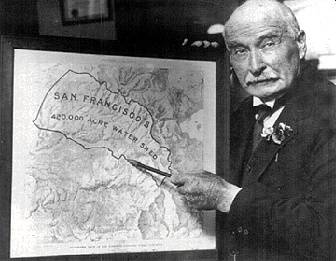



7 (S): The truth is that Michael and I started talking about the possibilities of finally bridging the Golden Gate.
The place, the entry to the San Francisco Bay from the Pacific, is just astonishing. There were voices about the need to connect both shores since the 19th century.
8/ (S): So we started analyzing whether it could be done. The San Francisco City Engineering Office provided us with maps, drawings, topography… and we worked on the design.
Look at this picture. Just a few years ago, this was the landscape:
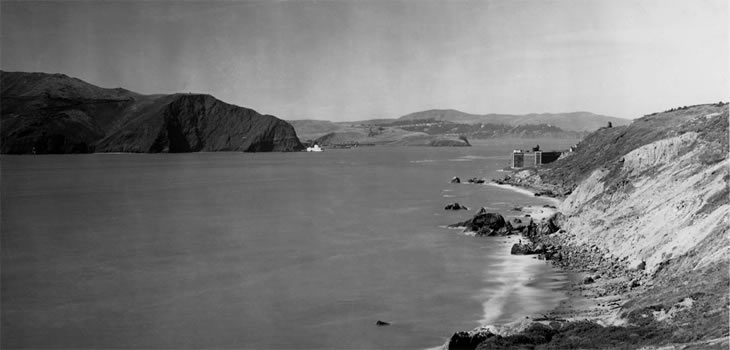

9/ (S): My first design was a hybrid bridge, both cantilever and suspension bridge. It increases the rigidity by reducing the length of the cable. This proposal, dated 1921 was by far the cheapest ($17M versus $60 or $100 for the other designs).
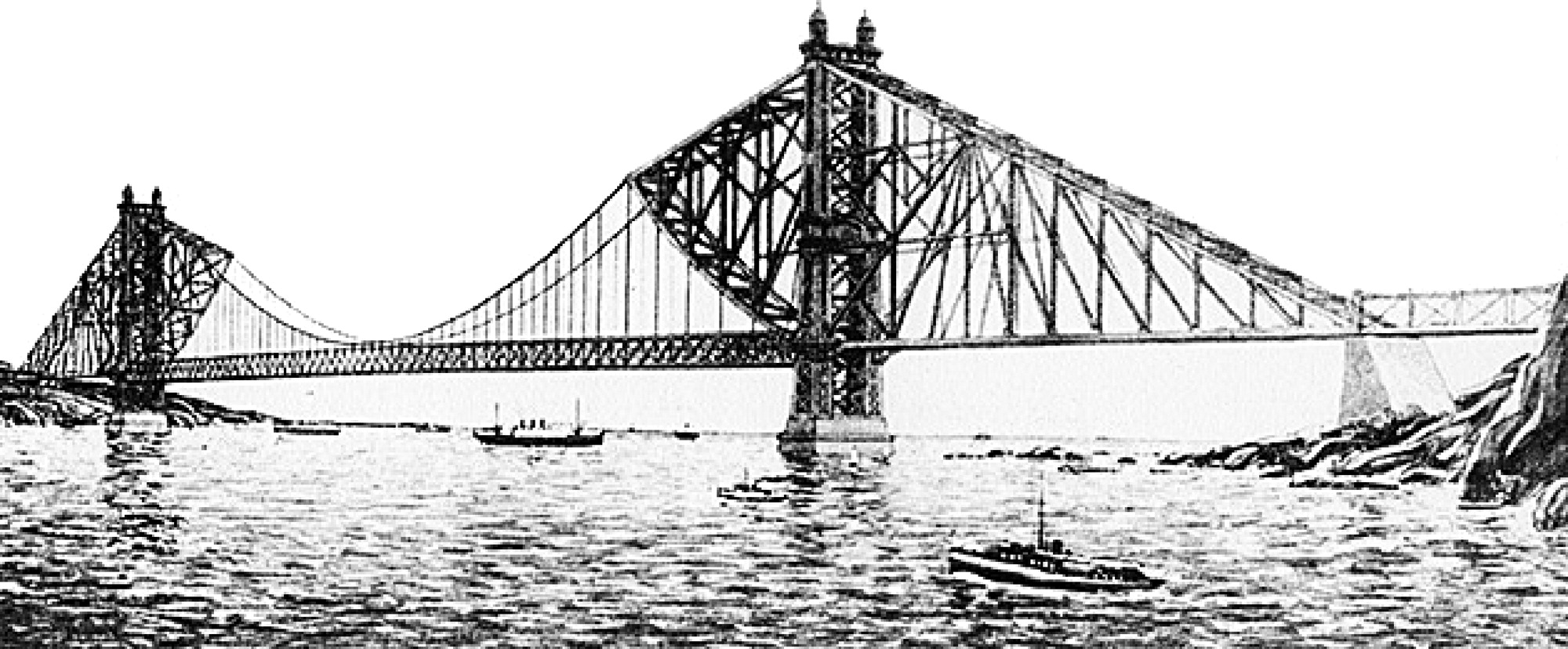

10/ (I): But there was great opposition…
(S): Yes… mainly from the ferry companies.
Michael and I created the Bridging the Golden Gate Association in 1923 to promote construction. After several years explaining the advantages of the project to the counties, they finally voted “yes” to the construction of a Bridge.
11/ (S): In 1928, a District was created within the State of California as an entity responsible for the final design, construction, and financing of the bridge (partially through county taxes). It was also in charge of negotiating with other agents, such as the War Department.
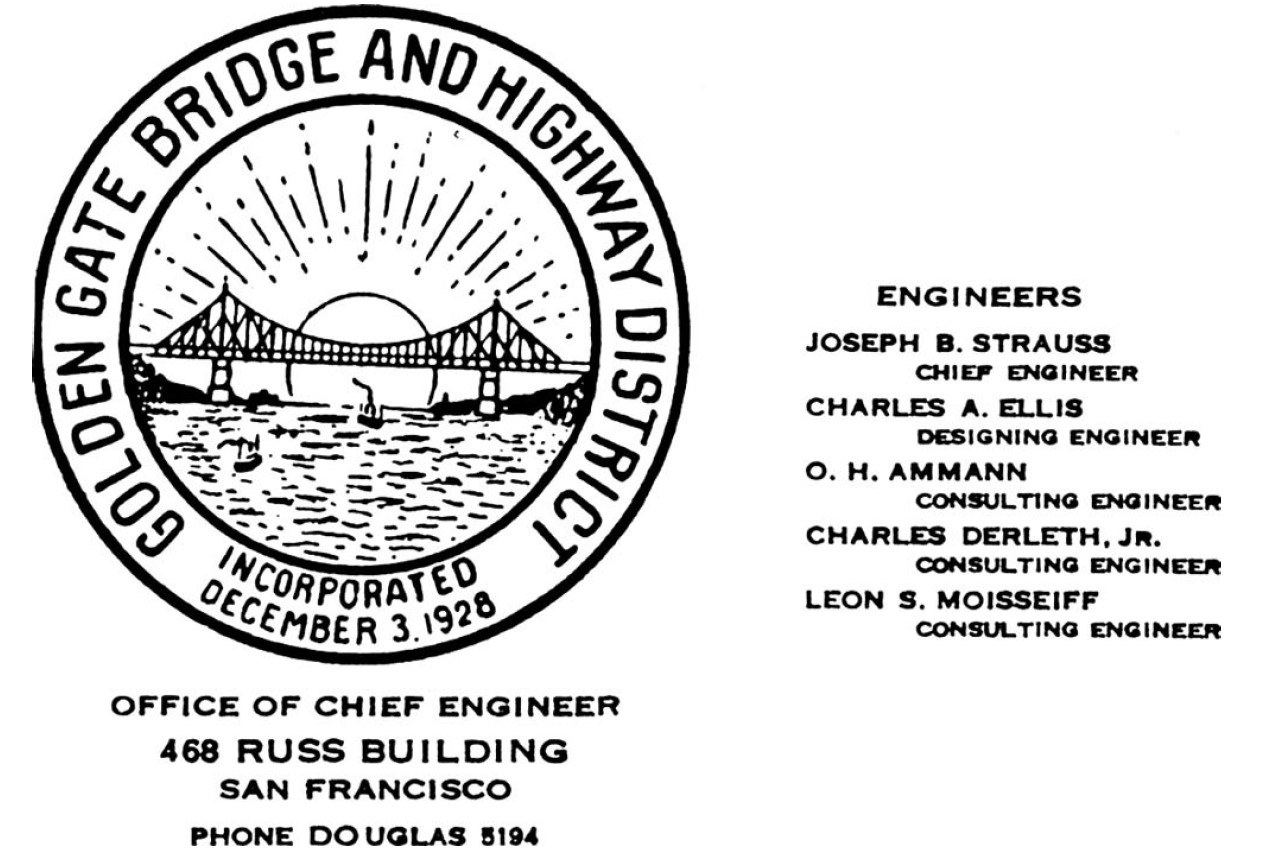

12/ (I): You were granted with the Chief Engineer position at the management committees that were established. Not only that, Mr. Strauss, you surrounded yourself with a very good team!
13/ (S): Totally! Over the years, I had been in contact with many good engineers and the three who came on as consultants are experts in large bridges. Leon Moisseif and Othmar Ammann were at that time building the George Washington Bridge in New York, and Professor Derleth was building the Carquinez Bridge here in San Francisco… can you imagine!
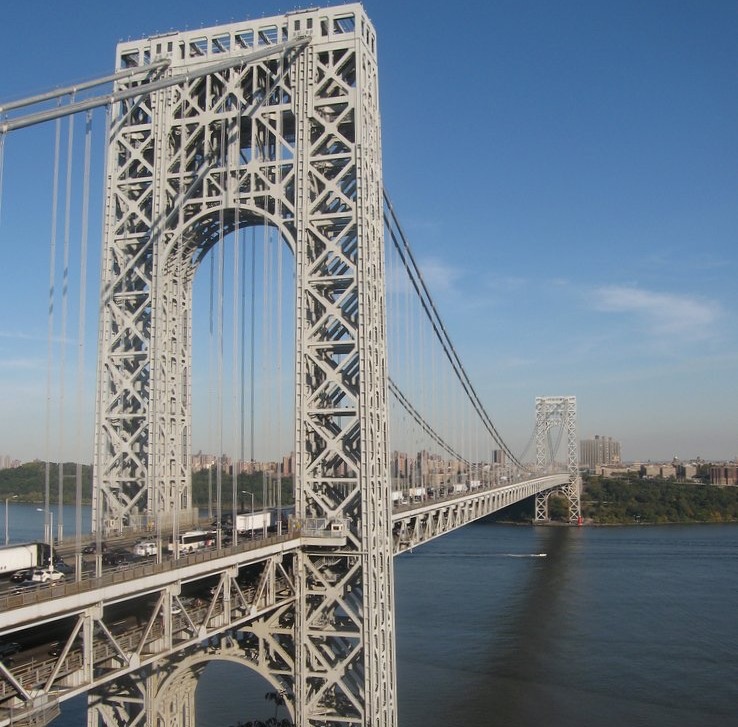

14/ Look, here we are, a few consultants around 1930. From left to right, Engineer Othman Ammann, Dean Charles Derleth, geologist Professor Andrew C. Lawson, myself and Engineer Leon Moisseiff.
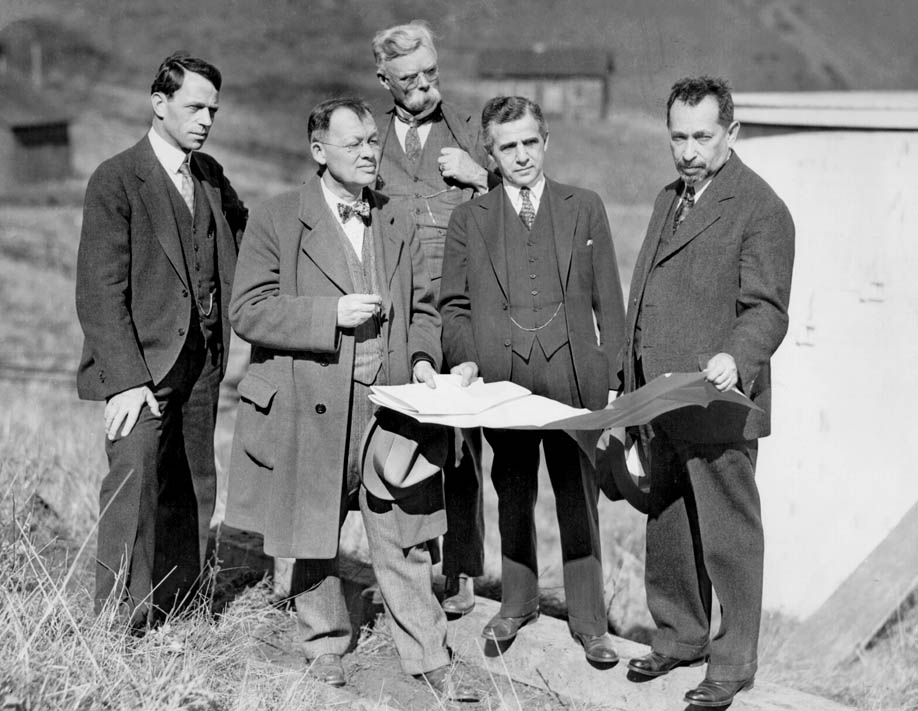

15/ (E): And the team changed the original design…
(S): A few years earlier, Leon Moisseif worked for me as a consultant for a purely suspension bridge proposal. By doing so we removed obstacles to navigation and made it cheaper and faster to build.


16/ (E): And a world record bridge.
(S): 1280 m of light (distance between towers)! A total length of almost 2000 m and the towers, 227 m high. Forgive me for getting technical, but this height is 18% of the span, which makes them balanced and, ultimately, a beautiful bridge.


17/ {Everyone laughs}.
(S): Continuing with the team, the structural design from my office was carried out by Charles Ellis, who studied mathematics and learned engineering working for the American Bridge Company. It is brilliant. He currently teaches at Purdue University.
18/ (S): He also contributed significantly to the calculation of the towers. I wanted the diagonals that help with lateral resistance to only be visible below the road… And that was a big challenge for Ellis!


19/ (S): Finally, consulting architect Irving F. Morrow designed the faceted details of the Art Deco towers, which create these plays of light and shadow, as well as helping in the choice of the color of the bridge.


20/ (E): Is it true that the War Department wanted to paint it with stripes?
(S): Black and yellow! Thank goodness “international orange” was finally chosen. A true icon of the city of San Francisco, California, and progress.


21/ (E): Speaking of the War Decree, it is worth mentioning that Secretary of War Patrick Hurley granted the construction permit on August 11, 1930. Let’s now ask Mr. Fred Divita, welcome. Tell me, how did you come to work in construction?
22/ (F): Thank you very much, miss. Well, I was very fortunate to study engineering at the University of Berkeley, California. I was born in the USA but my parents are Italian immigrants and they gave everything so that I could have a good future.
23/ When I graduated, in 1934, we were in the middle of the Great Depression. The only job I found was scraping paint off one of the Golden Gate towers.
(E): Scratch the paint?
24/ (F): {Laughs} When steel parts are manufactured, impurities, oxides, remain on the surface. At the Golden Gate they didn’t remove them and then the paint didn’t adhere well. So we had to scrape it all off (I spent 4 months) and then repaint it.
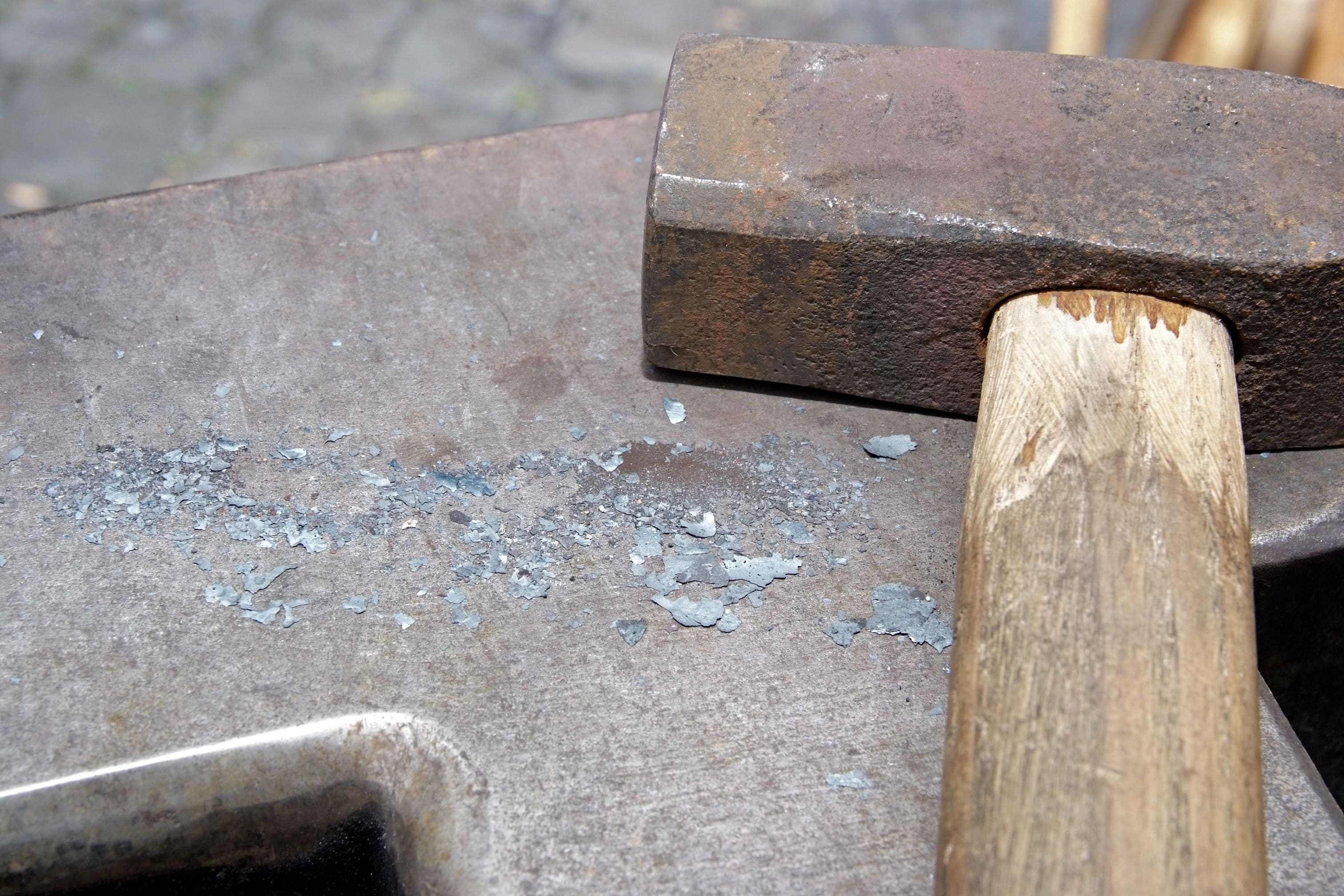

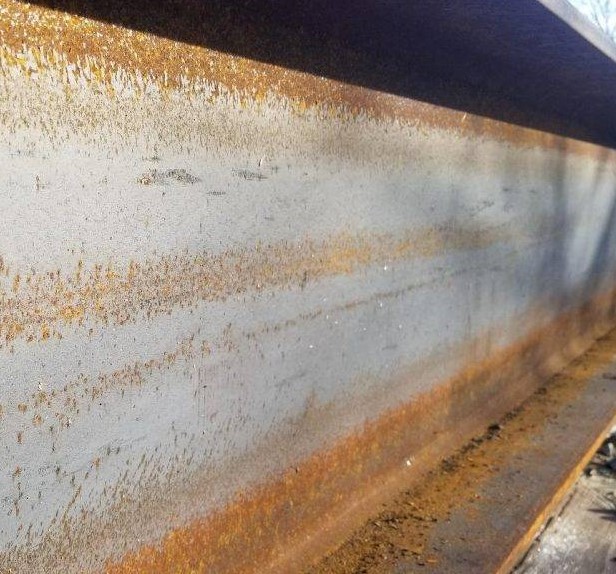

25/ (F): In fact, when construction was delayed by a problem with the foundation of the south tower, I was brought in to work on the steel for the Bay Bridge, where we sandblasted it before painting it. I wish they had done the same at the Golden Gate!
26/ (E): Of course! And what about the foundation?
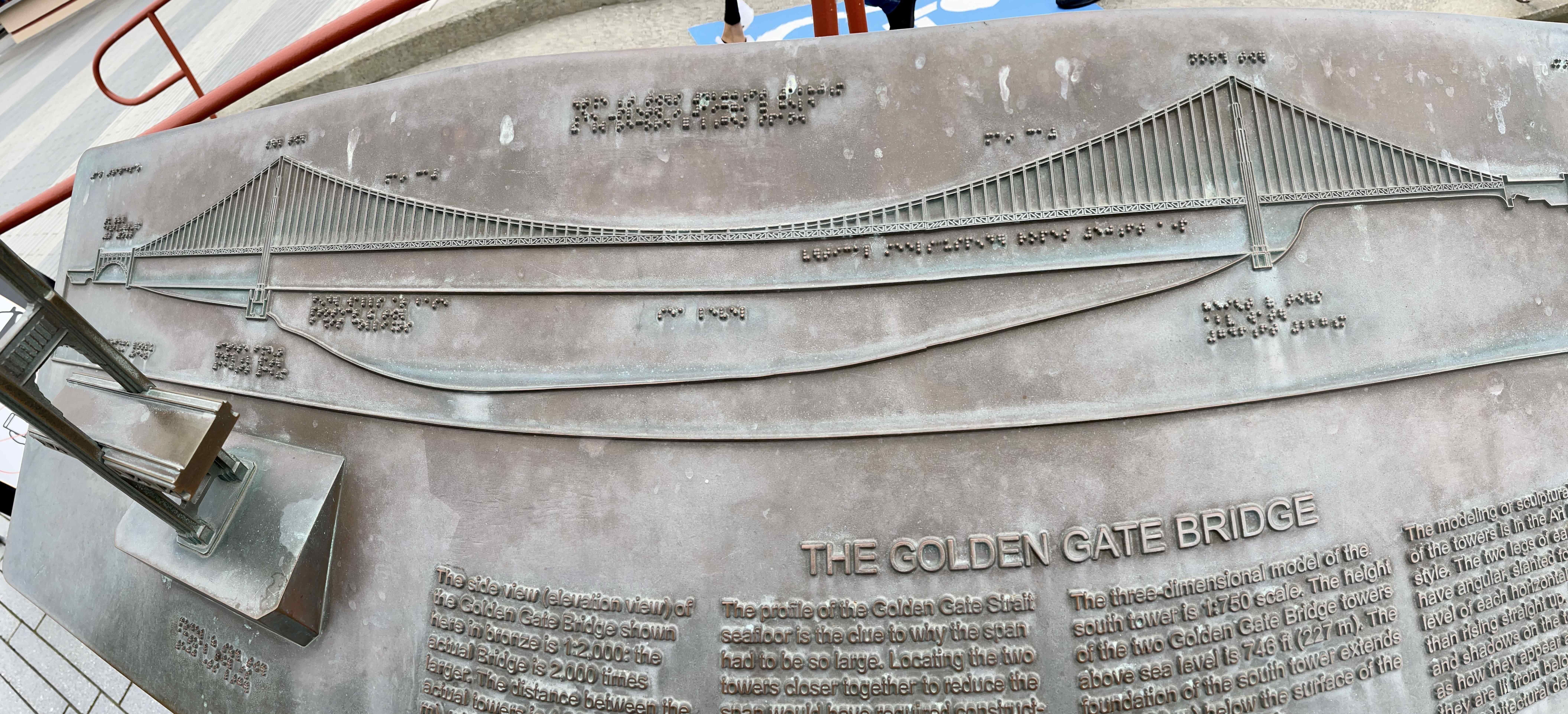

27/ (F): Well, as you know, the north tower was built on land, but the south one is in the middle of the water. A temporary bridge had to be built to get there, and fenders had to be built to protect the construction from the waves… even so, a storm swept it away and everything was delayed.
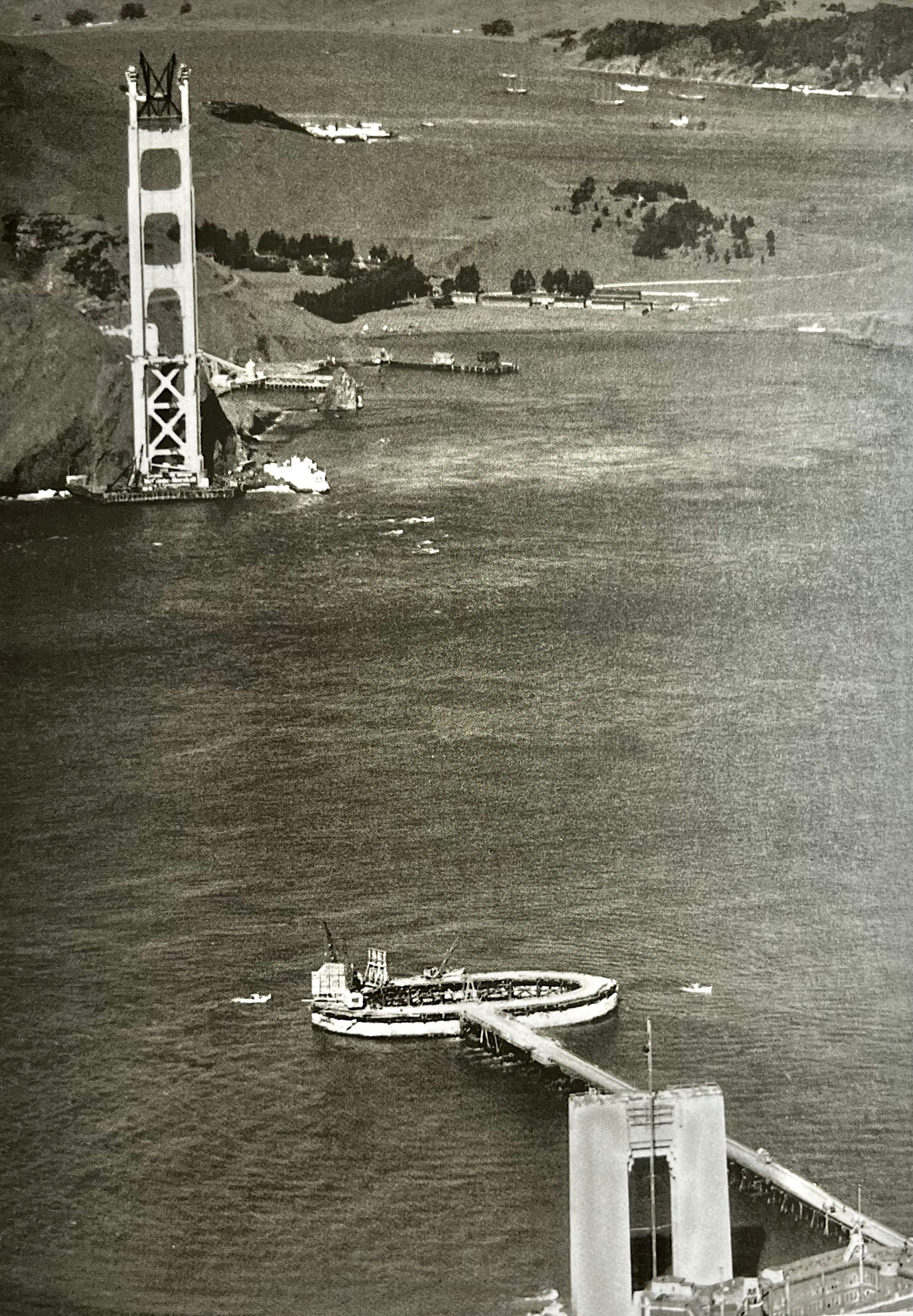

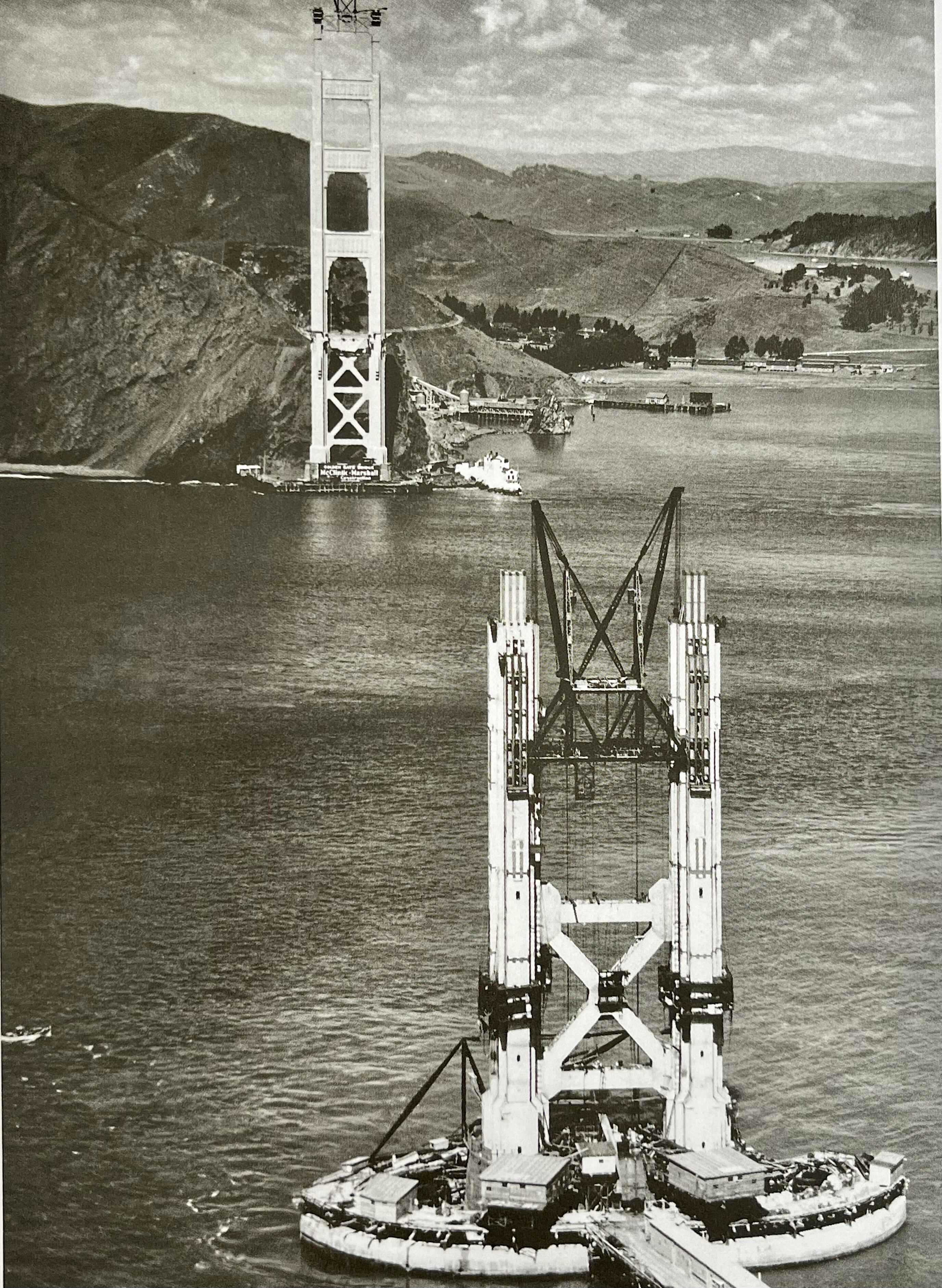

28/ (E): And what was the experience of working in the towers like?
(F): Well… it’s hard to find words to describe it. Going up to the 70th floor is scary. There were people who resigned directly the first time they came up. At the same time, it was very exciting to be a part of something like that.


29/ (F): The towers are made up of square cells measuring 3 feet on each side (1 meter). Below there are 103 cells that narrow down to just 21 at the top. They were connected by stairs to move up and down, passing through holes drilled in the steel sheets.
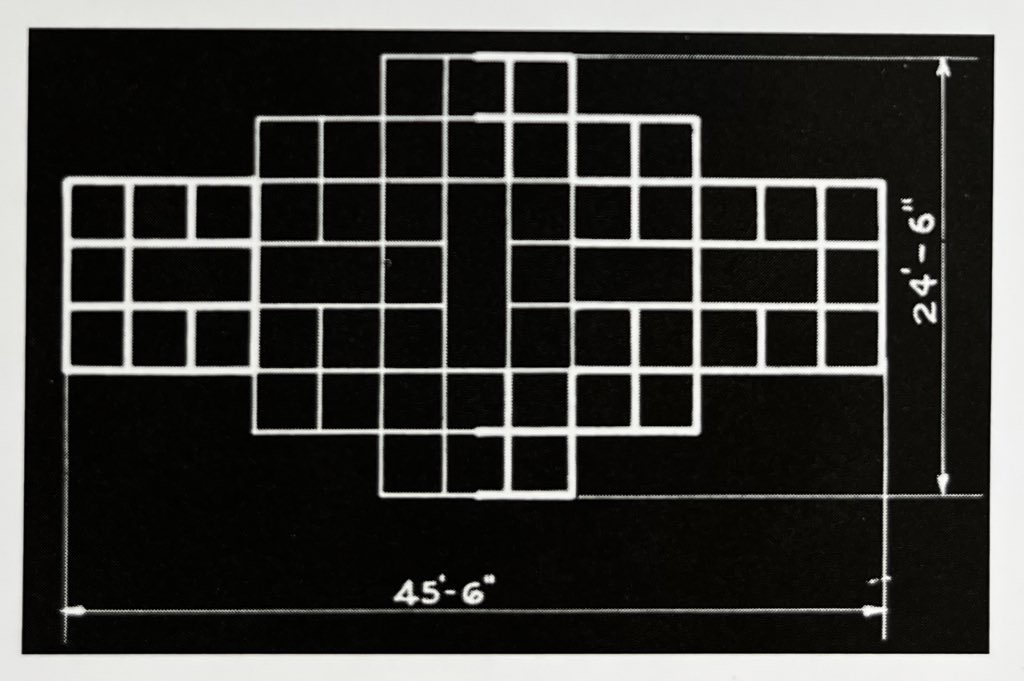

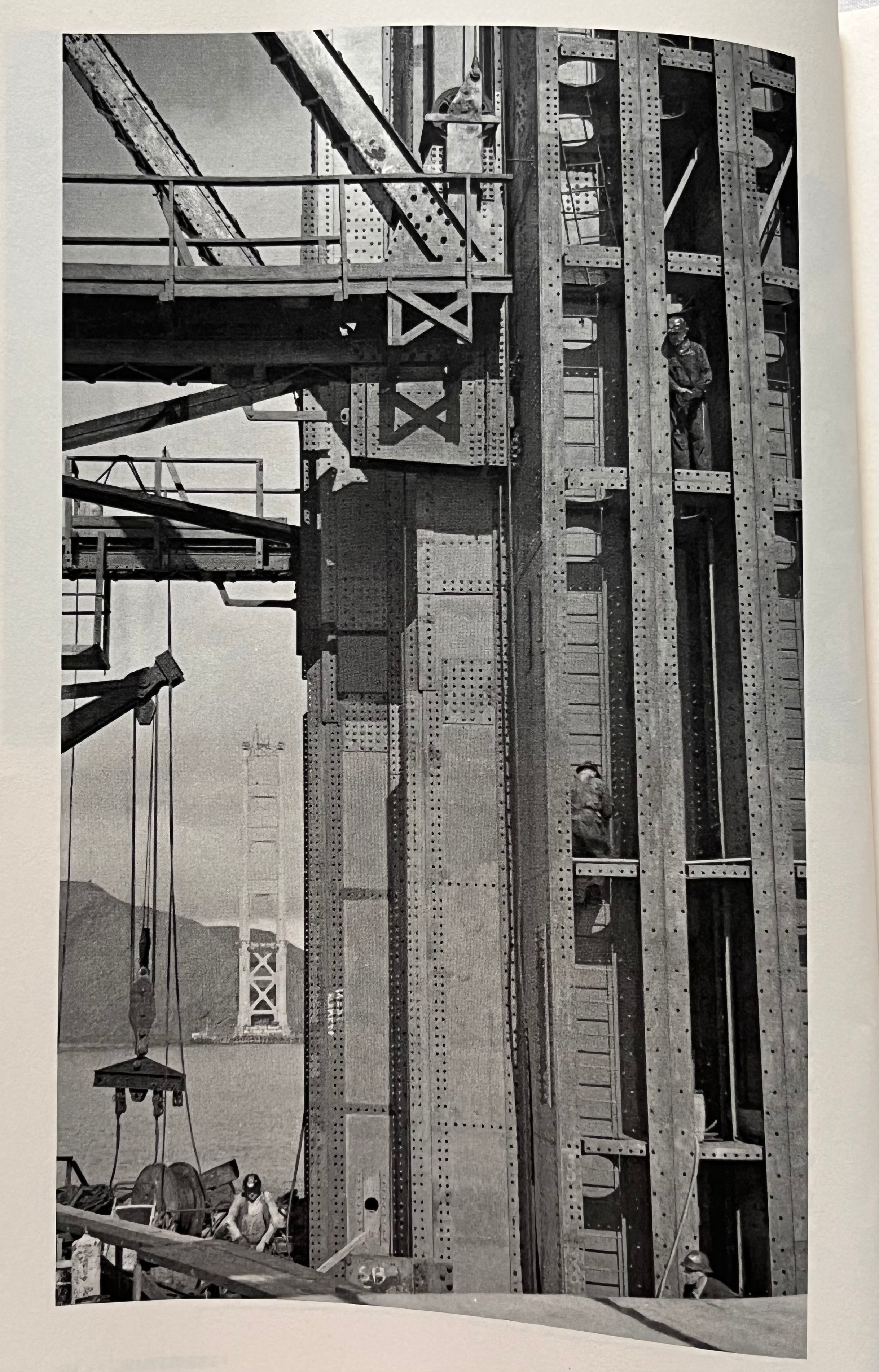

30/ (I): Although the fog in San Francisco…
(F): Ha, ha, ha. Yeah, that made it difficult too. The humidity got into your bones and you just wanted to get home and get warm.
31/ (E): And you would have a thousand stories to tell your family.
(F): Yes, I was telling my wife about the progress. When we would cross the river by boat from the north shore to SF on some free days, he was very impressed to see how the towers were growing, imposing from the water level…


32/ (E): And you finally got a job as an engineer.
(F): That’s right. After other experiences, I returned to the Golden Gate as the person in charge of installing the mesh to protect workers from falling, which was placed one level below the future bridge deck.


33/ (E): A real advance for safety on construction sites.
(F): More than a breakthrough. Mr. Strauss has implemented strict measures to protect the lives of workers during the construction of this bridge, including masks to protect against the smell of paint, protective glasses, etc.


34/ (Strauss): Thank you, Fred. It couldn’t be that the average number of deaths was 1 person for every million that the work cost. In our case, this would have meant almost 30 deaths. We have forced workers to wear helmets and lifelines under the risk of being fired.
(E): Unfortunately, several workers have died during construction…
{suspira}(S): Yes…. The first man died on October 21, 1936, when the advance vehicle failed. He fell dead into the net.
35/ (S): The other fatal accident occurred on February 17, 1937, when a scaffold with 12 men fell and broke the net. 10 died. We have placed a plaque at the south entrance.


36/ (F): But thanks to the network, 19 men saved their lives. Ironically they have called themselves the Halfway to Hell Club. {Risas nostálgicas}


37/ (E): Well… would you like to tell us something about the installation of the cables?
(F): Another feat! Each of the two main cables, in that hanging chain shape, has 27,572 strands inside!


38/ (F): These threads had to be passed from one side of the strait to the other by using pulleys. This system was invented by Roebling, the engineer of the Brooklyn Bridge, and it was very efficient, especially when they put the teams on each side to compete, ha, ha.
39/ (S): Yes, in just 6 months they were installed! And then, all that was left was to install the vertical hangers from which the board on which the riders would ride would hang.
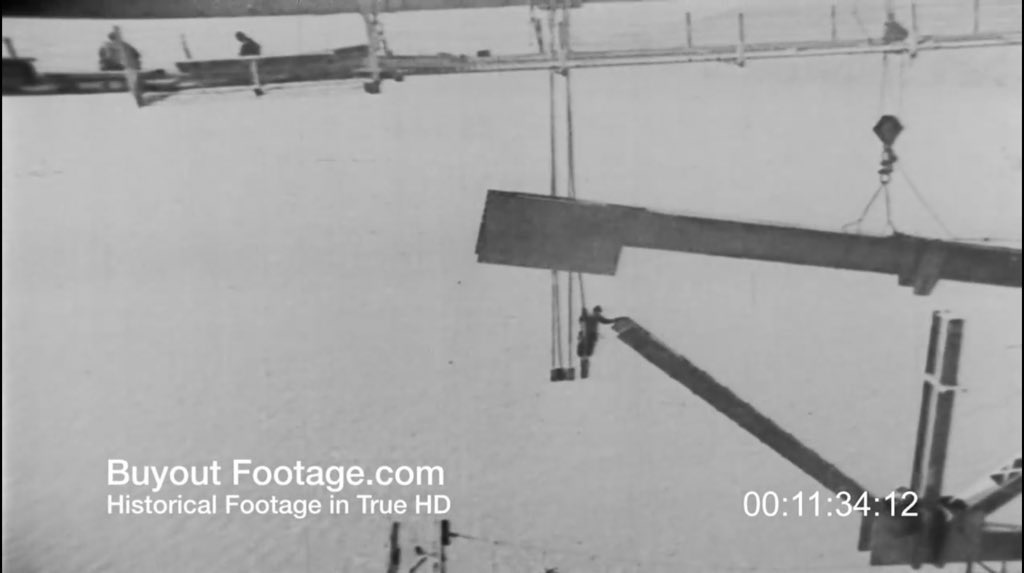

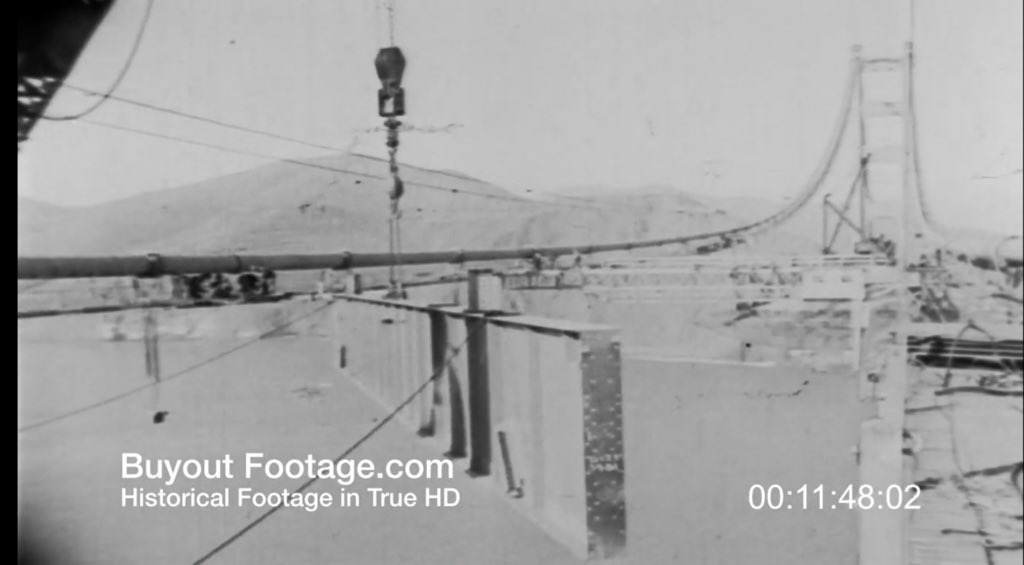

40/ (Minnie): My goodness… how impressive and how lucky I am to have been able to hear this story from your mouths… excuse the interruption.
(E): I agree 100% with your words, Miss Minnie. And I take this opportunity to ask you about your experience, being the first one to cross the bridge!
41/ (M): Yes{sonriendo} Well, my sister Carmen and I were out partying until late yesterday (there are celebrations everywhere in the city!). We arrived home at… 3 in the morning, grabbed our skates, and headed straight to wait for the opening ceremony on the bridge.


42/ (M): As soon as it opened, we put on our skates and off we went. Thanks to them, we were the first to reach the other side! Congratulations from the bottom of my heart, Mr. Strauss, Sr. Fred Divita, and to all those who have made this wonder possible.
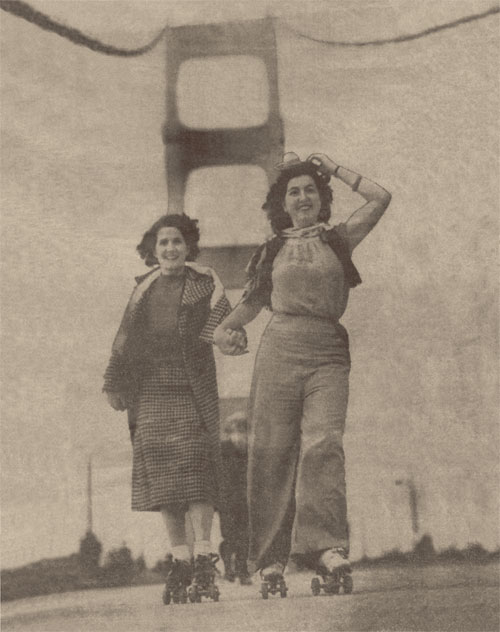

43/ May 27, 1937, a day I will never forget.


44/ (E): Sr. Strauss, Sr. Dear Miss Perez, thank you for this wonderful interview. Here’s tomorrow’s exclusive cover and some photos we took today. And now I leave you to continue enjoying the celebrations. Long live the Golden Gate!
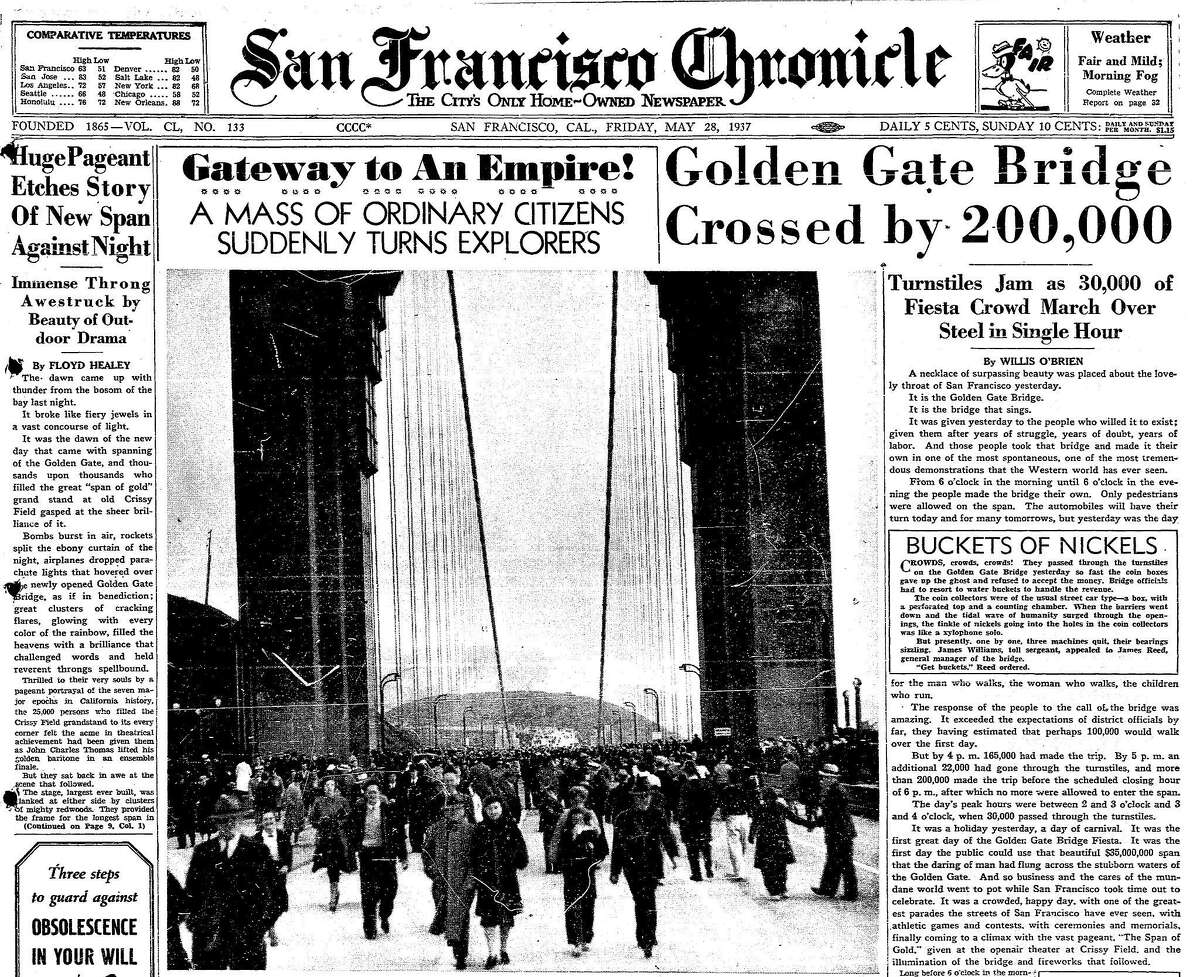

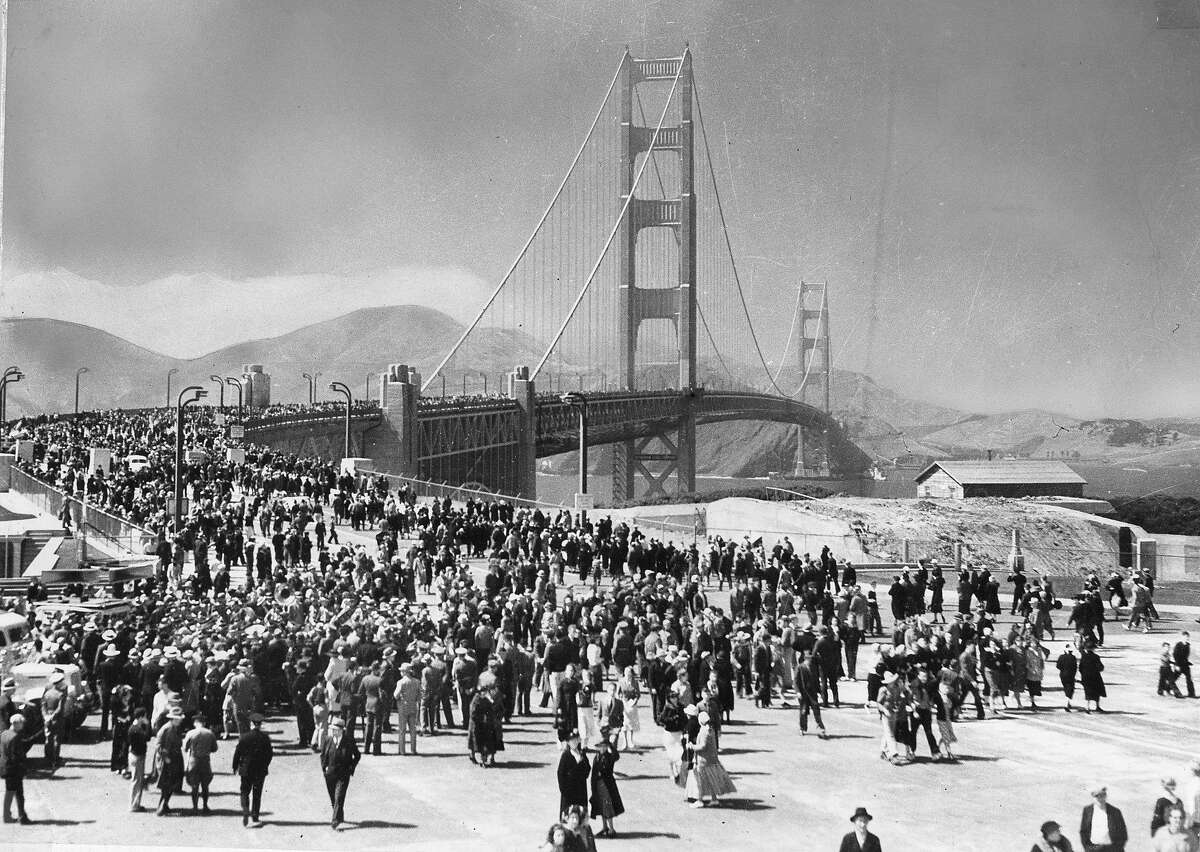

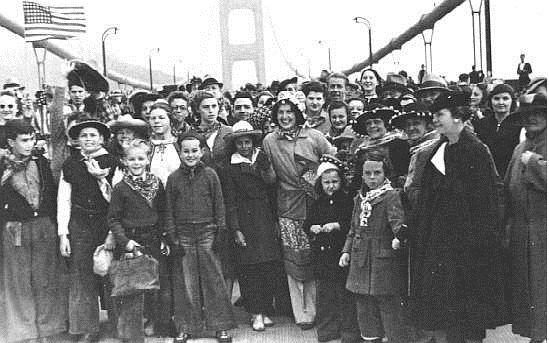

Thank you dear readers for getting this far. 😊
This post is dedicated to all the people who make the structure, with special affection to the workers who built it.
Although the interview is fictional, the characters and data are real.
I’ve allowed myself a historical faux pas… Strauss and Charles Ellis had a very bad relationship, and Ellis stopped working on the project (Strauss recommended that he take an unpaid and indefinite vacation) and did not want to see it finished.
Strauss died a year after his greatest work was inaugurated. Overwork and stress were the cause. Here is a poem he wrote for the grand opening day: https://yourdailypoem.com/listpoem.jsp?poem_id=3006
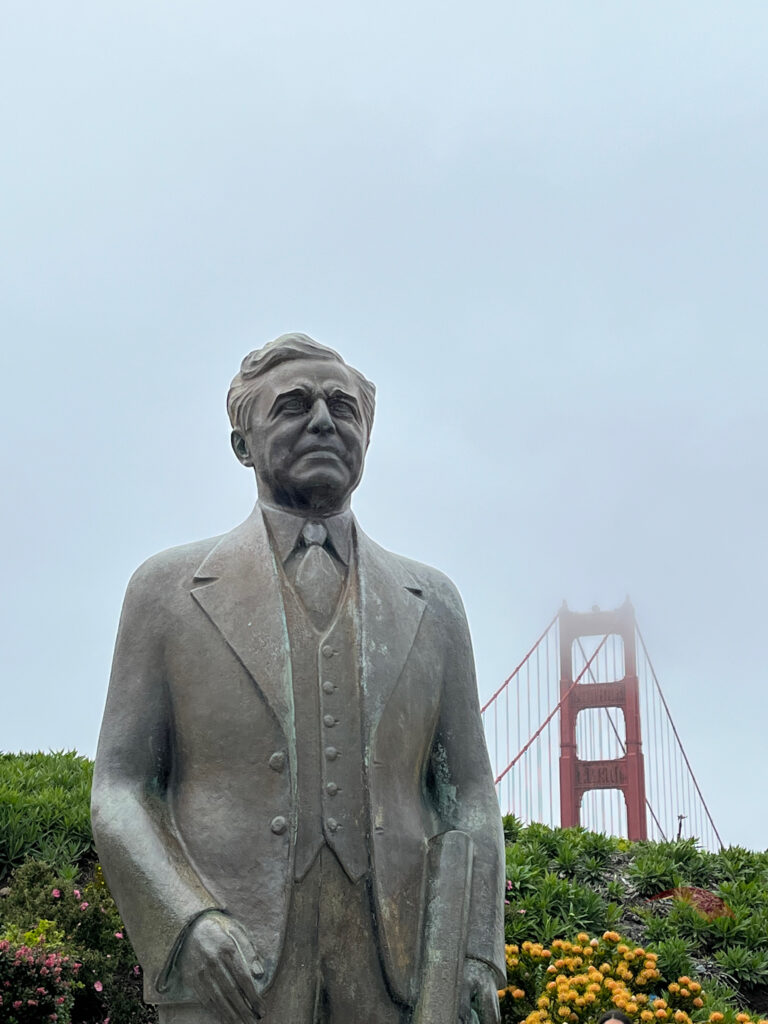

References and images:
– Books (in the image below)
– Youtube videos:
– Website: https://t.co/KNewnKSmS7
